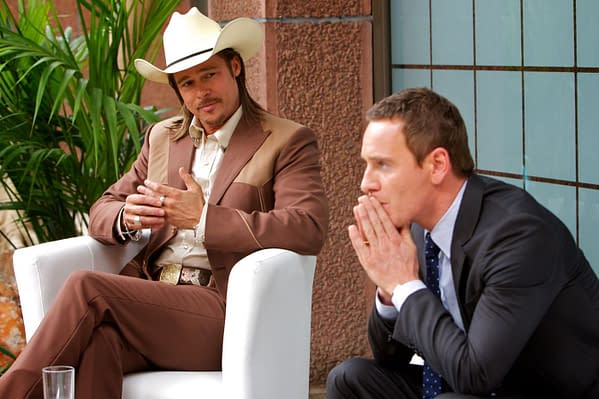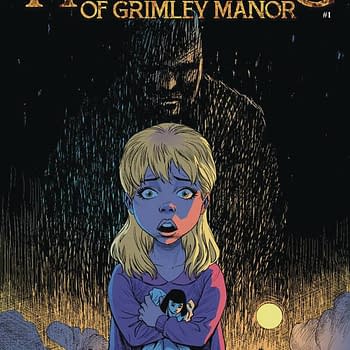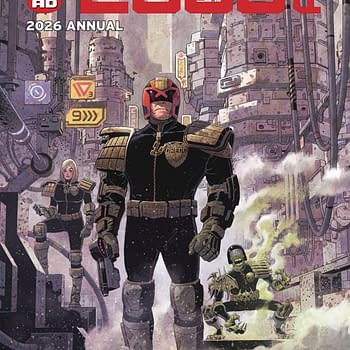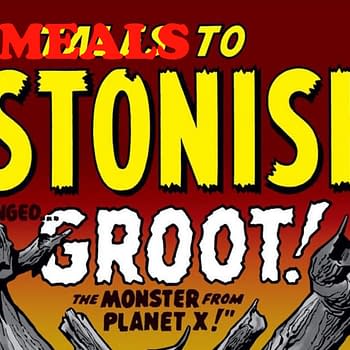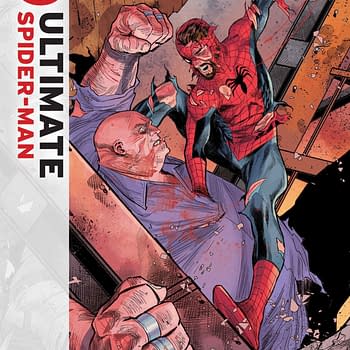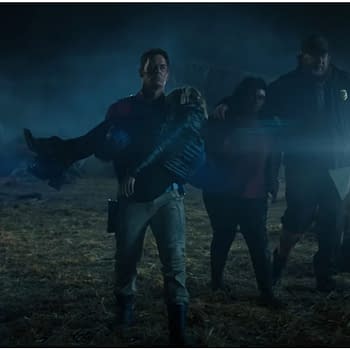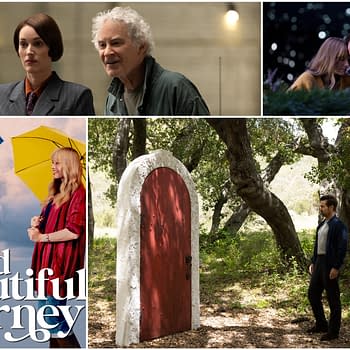Posted in: Look! It Moves! by Adi Tantimedh, Movies | Tagged: counselor
No Country For Snotty Critics – Look! It Moves! by Adi Tantimedh
Adi Tantimedh writes;
I saw The Counselor and enjoyed it. It's a piece of upmarket noir that deliberately refuses to follow expectations of Hollywood movies and delivers a picture of a morally fatalistic universe where doing the wrong thing brings Old Testament-levels of retribution on almost everyone. It has the distinction of an original screenplay by Cormac McCarthy and directed by Ridley Scott.
To people who read books, this was a bit of an event. The screenplay has been published in book form and if you read the reader reviews on Amazon, you'll find them praising it and suggesting you read it first before watching the movie to get the complete experience. The screenplay is an earlier draft, and you see all the literary indulgences McCarthy took before Ridley Scott pared down the script to make it the leanest, most economically directed movie he's made in years. It's an interesting exercise to compare the screenplay with the movie to see how much dialogue the director decides to cut in order to make the movie tell its story as visually as possible after all the hyperreal and heavily-layered dialogue that makes it almost a theatrical play.
What I find baffling, though, is the sheer amount of hate the reviewers have heaped upon it. It's not really surprising that the movie is, as film industry reporters have reported rather gleefully, bombing at the box office – it's the feel-bad movie of the year, and rather refreshing for that. Yet the reviewers hated it, several slamming it for writer Cormac McCarthy appearing never to have read a screenwriter's manual as if that was a bad thing. If this were the 1950s, the story would fit the nastiness of any Jim Thompson novel and McCarthy would be considered one of the superior pulp writers. They didn't even acknowledge that The Counselor is a noir story where all the characters are bad guys and do not deserve a happy ending, especially since there's a duplicitous femme fatale who completely plays them all and leads them to their doom. Malkina, the gleefully amoral and casually vicious femme fatale is a typical noir archetype representing the male fear of sexually aggressive women, and McCarthy is knowing enough to have her lover, as played by Javier Bardem, admit he's both mystified and afraid of her. The story is very simple yet feels of the moment, not just in its depiction of the criminality of the Tex-Mex border and the tragedy of Cartel violence in places like Juarez but also in its subtext. McCarthy wanted to use the framework of noir to contemplate the fatal consequences of bad moral choices in an unforgiving universe, and every major speech in the story is a portent of doom. It makes for a good double bill with the Coen Brothers' adaptation of No Country for Old Men, which was also about the Old Testament-style consequences of one man making a bad choice due to simple greed. The Counselor is not about the empowered adventures of clever heroes but the inevitable fate of foolish men.
I wonder if the critics just decided it was time to get their knives out for Ridley Scott and McCarthy after years of critical acclaim. The uniformity of the hostility towards the movie feels like they reached a consensus about knocking it rather than actually taking it on its own terms. They were angry that it wasn't the type of movie they wanted it to be, which was a piece of escapist fluff. They missed that it refused to offer escapism, instead it pushes their noses into the squalid nastiness of the here-and-now. They seemed to miss that it had a similar structure and beats as No Country for Old Men, which was critically lauded and won Oscars. Reviews of the screenplay are completely different from reviews of the movie, as if the readers and fans of McCarthy understood the story and its themes better than the movie reviewers did.
Where No Country for Old Men could be read as a post-9/11 movie in its subtext of uncertainty and violence (I remember the Coens said as much), The Counselor can be read as a post-financial meltdown movie in the way its main characters make a bad investment that ruins them and brings their whole world crashing down on them. Where No Country for Old Men at least had good guys in the form of Tommy Lee Jones' wise lawman who comes to recognise he's human and does not want to die needlessly, The Counselor offers no good guy figure to give the audience comfort or reassurance, depicting a universe where everyone is lost, standing on an existential abyss they try to joke away, on the make and taking risks with criminal gambles they know better than to get involved in.
This calls into question what people – or maybe it's just a lot of reviewers – actually think movies are for. Have they been conditioned to expect just heroic actions and happy endings? There's been a lot of complaining about the impending Death of Cinema as the internet and cat videos take over the average punter's viewing preferences, but when something comes along that's outside the predictable and clichéd formulas of Hollywood blockbusters, the critics piss all over it. Or are reviewers just getting lazier and more stupid, refusing or unable to follow stories that don't spoon-feed every plot point to them or bothering to engage with the deeper meanings of a more complex story? Every year, there's at least one American movie that's maligned and misunderstood by the critics. Last year, it was The Master. This year, it looks to be The Canyons and The Counselor.
Staying out of the Manichean universe at lookitmoves@gmail.com
Follow the official LOOK! IT MOVES! twitter feed at http://twitter.com/lookitmoves for thoughts and snark on media and pop culture, stuff for future columns and stuff I may never spend a whole column writing about.
Look! It Moves! © Adisakdi Tantimedh




